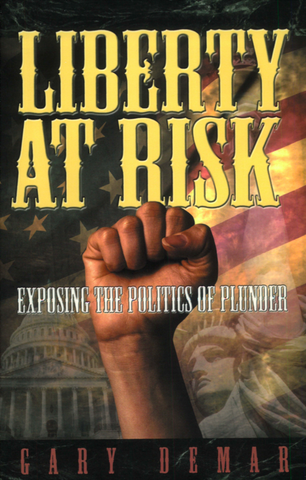Gary continues his interview with Paul Stevenson about politics and freedom and the decline of western culture.
When Jehoshaphat initiated reforms, one of the first areas of reformation was the judicial system: ‘‘And he appointed judges in the land in all the fortified cities of Judah, city by city. And he said to the judges, ‘Consider what you are doing, for you do not judge for man but for the LORD who is with you when you render judgment. Now then let the fear of the LORD be upon you; be very careful what you do, for the LORD our God will have no part in unrighteousness, or partiality, or the taking of a bribe"’ (2 Chron. 19:5-7). Reformation came from the top and the bottom. The decision of the judges must not issue from political or economic pressures or calculations, or any merely human purposes, but from obedience to the Lord of heaven, earth, and history, and to the righteous laws He has revealed to us in Scripture.
The prophets of Israel continued to warn the nation that only the law of God serves as a legal system’s foundation: “To the law and to the testimony! If they do not speak according to this word, it is because they have no dawn” (Isa. 8:20). Any attempt to repudiate the law of God as a standard for righteousness establishes man as judge, lawgiver, king, and savior and has the effect of leaving man under the rule of darkness. The Bible clearly shows that law originates in the character of God, and definitions for justice and righteousness find their meaning in Him and not in the finite, fallible, and fallen nature of the creature: “For the LORD is our judge, the LORD is our lawgiver, the LORD is our king; He will save us” (Isa. 33:22):
• “The works of His hands are truth and justice; all His precepts are sure. They are upheld forever and ever; they are performed in truth and righteousness” (Psalm 111:7-8).
• “Thy testimonies are fully confirmed; holiness befits Thy house, O LORD, forevermore” (Psalm 93:5).
• ‘‘All commandments are truth. Of old I have known from Thy testimonies, that Thou has founded them forever" (Psalm 119: 151b-152).
• “The sum of Thy word is truth, and every one of Thy righteous ordinances is everlasting” (119:160).
• “The word of our God stands forever” (Isa. 40:8).
On the other hand, the word of man is feeble because his nature is finite and fallen: “All flesh is grass, and all its loveliness is like the flower of the field. The grass withers, the flower fades, when the breath of the LORD blows upon it; surely the people are grass. The grass withers, the flower fades, but the word of our God stands forever” (Isa. 40:6-8).

Liberty at Risk
Without a proper understanding of civil government's biblical function and limited jurisdiction, Christians can be trapped into believing that civil government should promote policies beyond its designed purpose as long as they are for "the good of the people." This reasoning can lead many to choose security no matter what the cost to liberty. In Liberty at Risk, Gary DeMar presents a biblical, historical, constitutional, and rational approach to government. Not only has God set forth the principles of liberty in the Bible, He has also equipped us to think through the implications of these principles. Civil government is ordained by God, but it should never be made into a god.
Buy NowGary continues his interview with Paul Stevenson about politics and freedom and the decline of western culture. Gary points out that a biblical worldview was essentially assumed in both Britain and the United States for many years, but that worldview is steadily eroding.

